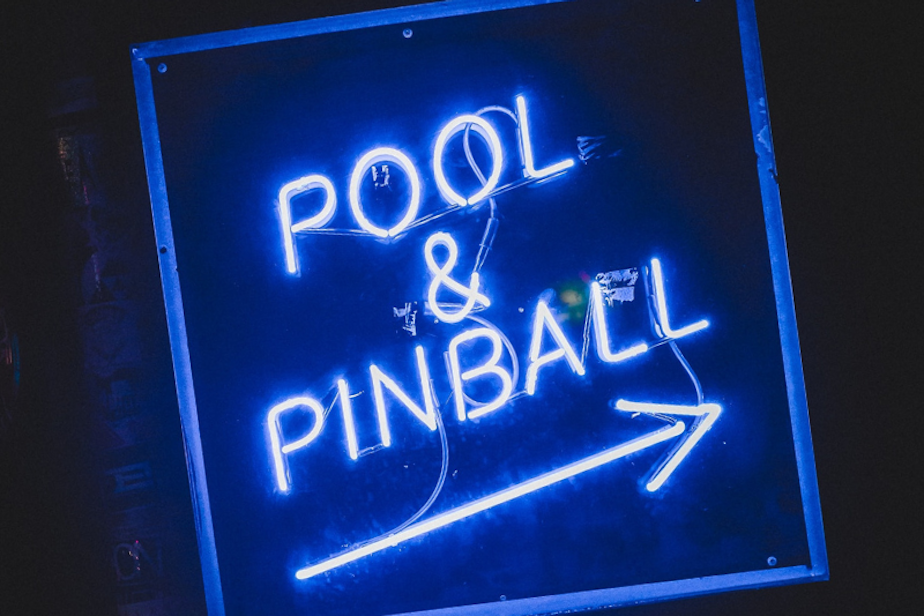Seattle strikes down its fee on arcade games, pinball, pool, and more fun

Game on! Seattle has nixed its licensing fee for arcade games, pinball machines, pool tables, and more. The goal is to help businesses bring in more fun as the city recovers from pandemic slowdowns.
The City Council unanimously voted (8-0) this week to end the fee established decades ago on common forms of entertainment.
"I'm pretty excited about that," said Alex Singleterry, owner of the Ice Box in Ballard. "It will save me quite a bit of money each year. I spend about $15,000 to $17,000 a year on those fees."
Singleterry has about 200 arcade and pinball machines to license, and notes that the council's timing is great since, "November is right around the corner, and that is time to renew the licenses."
Seattle is now the latest city to cancel its fee on amusement. Spokane, for example, recently made the same move. Such fees predate the modern era of arcade games.
Sponsored
Starting in the 1940s, many U.S. cities were banning activities like pinball machines, under the argument that they were bilking coins from children. The machines were associated with gambling (because early forms of these machines were gambling devices), and in turn, they were tied to organized crime. That was the situation in Seattle, where suppliers of pinball machines and jukeboxes were suspected of blowing up each other's warehouses, and threatening elected officials and public figures. Instead of banning the machines, Seattle set up a fee system to control them.
RELATED: The Northwest's pinball culture is flipping hot
The fee expanded to other forms of entertainment associated with vice. It also covered shuffleboards, pool tables, some TVs, and peepshow devices. It even covered riding machines, like mechanical horses, the preferred vice of miscreant preschoolers. The fee varied. Some devices, such as video games, could be charged as much as $1,500 per machine, per year. Dart boards were $25 per year. Pool tables, shuffleboards, and music devices (jukeboxes) were $50 per year. That's a lot of quarters required to make the business model pencil out.
But the landscape of Seattle's amusement has dramatically changed over the years.
"It became clear and evident pretty quickly that there was no health, safety, or welfare basis for this fee," said Councilmember Andrew Lewis, who put forth the bill to do away with the amusement fee.
Sponsored
At a council meeting this week, Lewis referred to the fee as a "relic" hiding in the city's code. As Seattle seeks to foster more post-pandemic recovery, especially in corners like downtown, Lewis saw eliminating the fee as one way to help businesses succeed.
"The story with this ordinance, repealing the amusement license fee, begins with GameWorks coming back downtown, our marque arcade, in the center Seattle, right after the pandemic," Lewis said, noting that he had a conversation with the business' owners about how to help such businesses recover.
"One of the things that came out of that conversation was something I was completely unaware of, which was this amusement license device fee that the city assesses. I looked into what the purpose of this fee was ... This fee is merely an extraction on amusement devices like arcade games, pinball machines ... fundamentally, a number of people in the industry said this has a chilling effect on businesses that rely on amusement devices located in the city of Seattle."
Lewis argued that the amount it raised was relatively inconsequential to the city's overall budget. In 2019, Seattle's amusement fee generated $95,550 from 68 businesses. Then the pandemic hit. In 2022, the city received $46,700 from 46 license applications. It is expected to produce $64,000 in 2023, and again in 2024.
To put that in perspective, Seattle's soda tax — a 1.75 cent per ounce tax on the vice of sugar — took in about $22 million in its first year (2018), and continues to produce millions in revenue for the city.
Sponsored
Still, Seattle's price tags on fun are considerably larger than its neighbors, according to the bill. Federal Way charges a $100 licensing fee per device. Kent charges $50. Bellevue and Renton have no such licensing fees.
Seattle recovery
Foot traffic in downtown Seattle is rising, but not as fast as in dozens of other U.S. cities, according to researchers at the University of Toronto.
From March to May, downtown foot traffic was at about 46% of pre-pandemic levels. That puts Seattle at number 55 out of 63 cities analyzed in the U.S. and Canada.
Sponsored
Things may have improved since May, however. Data from the Downtown Seattle Association suggests that June marks a significant upward trend in foot traffic, with nearly 3 million visitors to the city's core. That adds up to about 96% of the downtown visitor total of June 2019.
In June alone, about 80,000 people went in to work in downtown Seattle at least three days a week, according to the DSA. That's the highest level of downtown workers since March 2020, but still just 52% of June 2019 levels. Hotel stays were 101% of June 2019.
KUOW's Katie Campbell contributed to this report.

